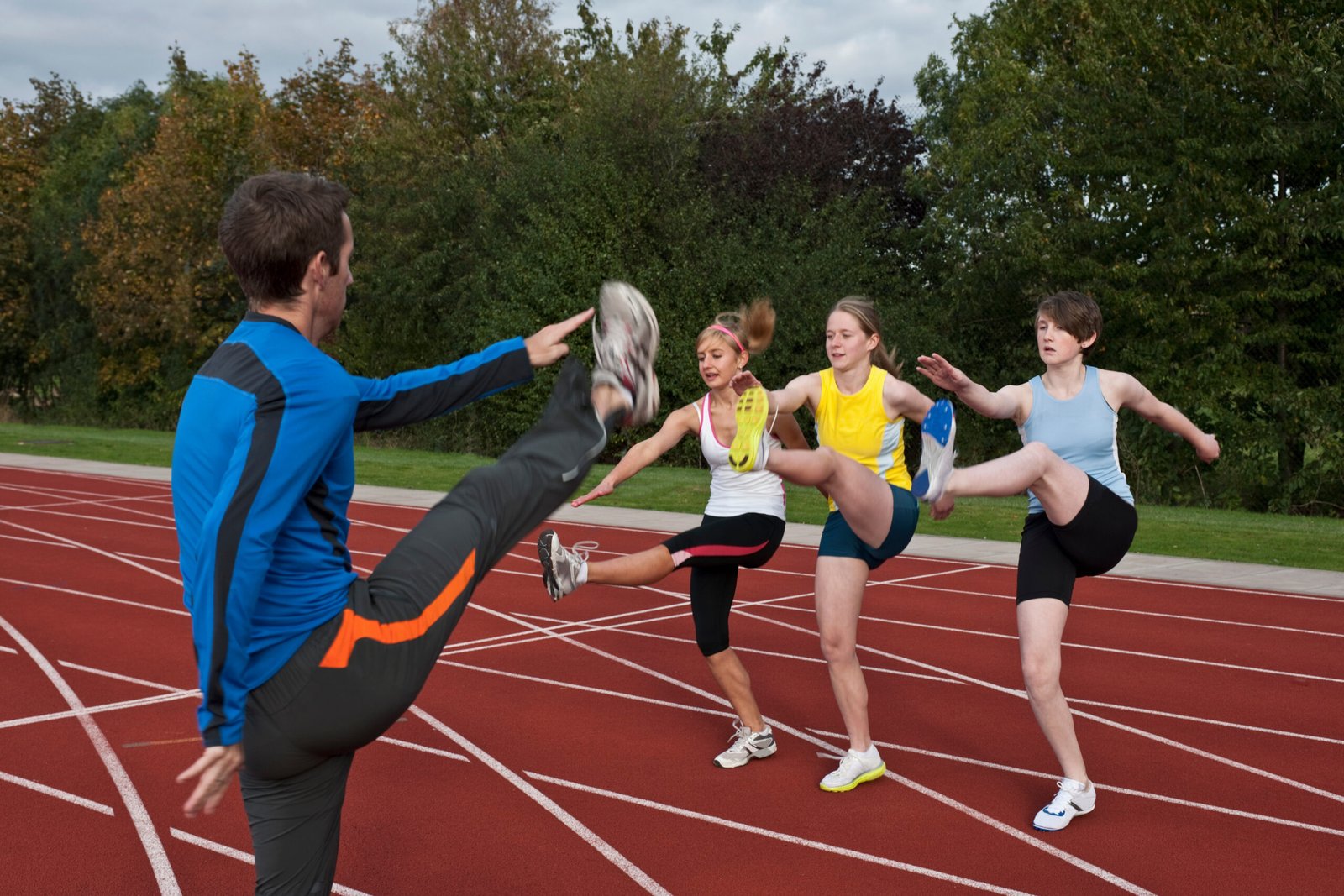Endurance athletes, including marathoners, triathletes, and ultra-runners, require exceptional stamina and resilience. To excel in such demanding sports, understanding and implementing the right nutrition strategy is crucial. Enter “Fueling Your Run: Nutrition Tips for Endurance Athletes,” a comprehensive guide that unlocks the secrets of optimal sports nutrition to propel your performance and help you achieve your goals. By mastering nutrition fundamentals and tailoring your nutritional intake to meet your unique needs, you can unlock new levels of energy, endurance, and peak athletic outcomes.
Nutrition for Endurance Events: Fueling Your Performance
| Macronutrient | Role in Performance | Pre-Run Foods | Post-Run Foods | Key Sources |
|---|---|---|---|---|
| Carbohydrates | Primary energy source for endurance | Whole grains, fruit (bananas, apples) | Granola, rice, fruit smoothies | Brown rice, oats, potatoes, pasta, bananas |
| Protein | Supports muscle repair and recovery | Yogurt, protein smoothie | Chicken, fish, legumes | Lean meats, dairy, legumes, tofu |
| Fats | Long-term energy source | Nut butter, avocado | Avocado, nuts, seeds | Olive oil, nuts, seeds, fatty fish |
| Electrolytes | Replenish lost minerals (sodium, potassium, magnesium) | Electrolyte-rich drinks | Coconut water, sports drinks | Electrolyte drinks, bananas, leafy greens, nuts |
Endurance athletes often push their bodies to the limits, relying heavily on fuel to sustain performance during long-distance events. Proper nutrition becomes a game-changer in these disciplines, ensuring both energy replenishment and recovery. Carbohydrates, key energy players, should lead the diet of any endurance athlete, given their pivotal role in maintaining energy levels throughout a strenuous run. In conjunction with carbohydrates, hydration is vital; athletes need a strategic plan to ensure adequate fluid and electrolyte intake before, during, and after events to safeguard against dehydration and to maintain alacrity.
By emphasizing efficient protein intake, athletes can bolster muscle recovery and repair—essential after prolonged exertions. Planning and timing meals, including pre-run fueling strategies and post-run recovery nutrition, further maximizes endurance performance and minimizes recovery time. Some actionable strategies include:
– Incorporate complex carbohydrates: Prioritize foods like whole grains, legumes, and starchy vegetables to boost energy stores.
– Stay hydrated: Establish a routine where you consume fluids regularly, opting for electrolyte-rich beverages to replace minerals lost through sweat.
– Include lean proteins: Consider lean meats, dairy, or plant-based protein sources to promote muscle recovery.
– Pre-run meals: Opt for easily digestible foods like bananas or oatmeal to avoid gastrointestinal discomfort.
– Post-run snacks: Use nutrient-dense recovery shakes featuring protein and carbohydrate blends to expedite muscle repair.
With a well-rounded nutrition strategy, you can enhance your endurance, stave off fatigue, and achieve formidable results in any endurance event.
Muscle Glycogen: Your Energy Source
| Timing | Carbohydrate Sources | Purpose | Benefits |
|---|---|---|---|
| Pre-Run | Whole grains (pasta, oatmeal), fruits (bananas, oranges) | Build glycogen stores | Provides sustained energy for long-duration events |
| Mid-Run | Energy gels, dried fruits (dates, raisins) | Quick glucose replenishment | Maintains energy levels, delays fatigue |
| Post-Run | Fruit smoothies, granola, chocolate milk | Replenish glycogen stores | Speeds up recovery and muscle repair |
| Ongoing | Quinoa, berries, sweet potatoes | Ongoing energy supply | Supports continuous energy needs during extended training |
For endurance athletes, muscle glycogen stands as the frontline fuel reserve sourced directly from carbohydrates, critical for sustaining energy during prolonged activities. Meticulous management of glycogen stores through deliberate nutritional strategies not only optimizes performance but also postpones the onset of fatigue, allowing athletes to go the extra mile. Consuming carbohydrates at strategic times—before, during, and after running—ensures muscles are well stocked and replenished, a crucial aspect for maintaining peak energy and performance levels.
Glycogen depletion, an athlete’s worst enemy, is synonymous with waning performance, underscoring the importance of maintaining adequate carbohydrate intake. Detailed fueling strategies particular to each athlete, hinging on training intensity and duration, can refine glycogen usage and fortify athletic accomplishments. Consider the following strategies to maximize glycogen stores:
– Pre-workout carbohydrates: Start with whole grain pasta or brown rice to build glycogen stores before extended physical activity.
– Mid-run snacks: Use energy gels or fruits like oranges to supply quick glucose boosts, keeping your glycogen topped up.
– Post-exercise replenishment: Integrate chocolate milk or fruit-smoothies that blend carbs and proteins to efficiently replenish glycogen levels.
– Trial and error: Personalized strategies allow athletes to discover the most effective carbohydrate sources and timing.
Harnessing the power of muscle glycogen through personalized nutrition strategies enables athletes to defy limitations, enhancing both endurance and athletic prowess.
Hydration and Electrolytes: Performance Essentials
| Hydration Phase | Fluid Type | Electrolyte Sources | Recommended Timing | Benefits |
|---|---|---|---|---|
| Pre-Event | Water, sports drinks with electrolytes | Sodium, potassium, magnesium | 2-3 hours before event | Hydrates body, prepares for performance |
| In-Event | Water, electrolyte drinks | Sodium, potassium, calcium | Every 15-20 minutes | Maintains fluid balance, prevents dehydration |
| Post-Event | Water, recovery drinks with electrolytes | Sodium, potassium, magnesium | Within 30 minutes of finishing | Replenishes fluids and electrolytes, accelerates recovery |
Maintaining adequate hydration is non-negotiable for endurance athletes striving to sustain performance and delay fatigue throughout extended physical challenges. Electrolytes, including sodium, potassium, and magnesium, are indispensable for fluid balance and curbing muscle cramps. Consuming a mix of water and electrolyte-enhanced beverages ensures that athletes maintain the fluid equilibrium crucial for top-notch performance.
Monitoring individual sweat rates becomes imperative as it coordinates the body’s need for electrolyte replenishment, thereby managing potential dehydration risks strategically. Developing a personalized hydration strategy proves invaluable in optimizing endurance and achieving exceptional athletic results. Key considerations for hydration strategies include:
– Predict sweating rates: Gauge how much you sweat during various activities and adjust fluid intake accordingly.
– Sport drinks: Select electrolyte-enhanced drinks designed for endurance, ensuring they complement your dietary needs.
– Balance and timing: Hydrate evenly throughout the day rather than loading just before activity starts.
– Environmental considerations: Adjust your fluid and electrolyte intake based on weather, exercise intensity, and duration.
– Experiment in training: Regular practice of your hydration plan ensures it aligns with your personal sweat rates and needs.
Strategic hydration coupled with electrolyte management prevents performance-diminishing dehydration, setting the stage for athletes to shine during their endurance pursuits.
Strategic Hydration during Races and Training
Optimal hydration becomes an imperative tool to boost performance and stave off dehydration during training and races. By strategically timing fluid ingestion, athletes not only sustain endurance but also mitigate fatigue and expedite recovery. Balancing electrolytes during exhausting activities helps to counterbalance losses via sweat, ensuring performance is uncompromised.
Hydration strategies should be adaptable, considering variables such as weather and exertion levels, to maintain efficacy across various scenarios. Scrutinizing and practicing these strategies consistently in training will allow athletes to fine-tune them for individual effectiveness:
– Pre-race hydration: Start hydrating at least a day before an event with balanced fluids containing electrolytes.
– In-race timing: Schedule sips during runs at steady intervals, ensuring enough intake without causing discomfort.
– Weather readiness: Increase electrolyte consumption on hot days to counteract increased losses due to excessive sweating.
– Experiment in real scenarios: Use training sessions to hone your hydration plan, ensuring it fits seamlessly into your race routine.
Even the most minor adjustments in your hydration strategy can produce significant improvements in race-day performance and recovery, bringing athletes a step closer to achieving their best results.
Tailoring Nutrition for Optimal Performance
| Aspect | Consideration | Actionable Tip | Tools/Resources |
|---|---|---|---|
| Carbohydrate Needs | Varies based on training intensity | Aim for 3-12 grams per kg of body weight | Use a nutrition tracker to monitor carb intake |
| Protein Requirements | Based on training volume and muscle repair needs | 1.2 – 2.0 grams per kg body weight | Protein shakes or meals post-training |
| Hydration Needs | Influenced by sweat rate, environment, and activity duration | Drink 400-800 mL per hour during training | Weigh yourself pre and post-exercise to assess fluid loss |
| Electrolyte Needs | Higher in hot climates or during intense activity | Include sodium, potassium, magnesium in hydration plan | Use electrolyte supplements or drinks as necessary |
To draw out an athlete’s potential, personalized nutrition plans are essential, effectively syncing with individual energy needs and goals. Placing emphasis on key macronutrients such as carbohydrates for sustained energy, and proteins for muscle repair, forms the foundational blocks of peak athletic performance. The timely consumption of meals and snacks fortifies energy levels during key moments, ensuring the body is primed for action.
In addition, hydration strategies, incorporating electrolytes, are vital to sustaining endurance and preventing muscle cramps. To truly excel, athletes need to employ a process of trial and error, discovering the nutrition strategies that align seamlessly with their unique physiology and performance objectives. To personalize nutrition:
– Assess energy needs: Use metabolic assessments or tools to understand your caloric requirements specific to your training style.
– Schedule meals/snacks: Create a meal calendar that optimizes nutrition timing in relation to your running schedule.
– Explore hydration tactics: Experiment with different drinks—both electrolyte-rich and plain—to find the optimal hydration approach.
– Incorporate a variety of nutrients: Use diverse carbohydrate and protein sources to provide well-rounded nourishment.
– Seek guidance: Consult with sports nutrition experts to tailor a diet plan aligning with your precise needs.
Finding the right balance across nutrition components ensures athletes have the capacity to perform at their peak whenever it counts.
Nutrition for Endurance Athletes 101
Endurance athletes are tasked with addressing key nutritional aspects to elevate performance sustainably. Carbohydrates serve as the primary energy source; hence, their ingestion should be prioritized to sustain efforts and keep fatigue at bay. A balanced intake of proteins facilitates muscle repair post-intense workouts and competition, supporting recovery processes. Hydration remains a cornerstone of endurance nutrition, advocating for consistent fluid delivery and periodic reliance on electrolyte-rich beverages during prolonged exertion.
It’s equally crucial for athletes to opt for easily digestible foods pre-run to minimize gastrointestinal woes, thereby enhancing energy availability without discomfort. Experimentation in training with diverse nutrition approaches enables athletes to tailor strategies best aligned to their bodies, ensuring no surprises come race day. Key steps for bolstering nutrition include:
– Fuel muscle glycogen: Choose pasta, grains, or potatoes for pre-race loading.
– Integrate lean proteins: Opt for chicken, fish, or legumes post-run to support muscle recovery.
– Daily hydration routine: Establish frequent water breaks, focusing on electrolyte rebalancing drinks during extended sessions.
– Digestible snack options: Go for energy bars or fruit smoothies pre-activity.
– Fine-tune nutrition strategy: Employ race simulation training to cement effective nutrition rituals.
By honing in on essential nutrition practices, athletes gain the capability to push their limits and achieve peak performance in endurance sports.
Carbohydrates

Carbohydrates are the cornerstone of energy for endurance athletes, providing the long-lasting fuel necessary for prolonged physical exertion. Adequate carbohydrate consumption ensures the maintenance of glycogen stores within muscles and the liver, which is critical for enhancing performance and delaying fatigue. For optimal results, a balanced carbohydrate intake is crucial both prior to, during, and following physical endeavors to sustain energy levels and facilitate efficient recovery.
Athletes benefit from understanding the difference between simple and complex carbohydrates: while simple carbs offer quick bursts of energy during runs, complex options support sustained energy for extended periods. Customizing carbohydrate intake allows athletes to adapt strategies according to individual needs and training intensity, leading to more refined endurance and enhanced performance. Consider these carbohydrate-feeding strategies:
– Pre-event fuel: Whole grains, fruits, and vegetables provide a gradual energy release, perfect for pre-race preparation.
– Mid-race energy: Make use of energy gels or dried fruits for rapid glycogen replenishment.
– Post-activity recovery: Embrace carbohydrate-rich snacks like granola or bananas to support recovery.
– Assess intensity demands: Tweak carbohydrate intake relative to workout difficulty and duration.
Consistently maintaining a smart carbohydrate strategy empowers athletes to conquer challenging distances with vigor and resilience.
How Many Carbohydrates Do You Need?
Recognizing the critical role of carbohydrates as the primary energy source during long workouts and races, endurance athletes face unique nutritional requirements. Daily carbohydrate intake should be tailored to the athlete’s training intensity and duration, often ranging from 3 to 12 grams per kilogram of body weight. Prioritize complex carbohydrates such as whole grains, fruits, and vegetables for their sustained energy release properties, paving the way for targeted performance improvements.
Pre-run meals are vital to replenish energy stores, while post-run snacks promote recovery. Listening intently to physiological cues and customizing carbohydrate intake accordingly can lead athletes toward unparalleled performance. Implement these carbohydrate-measuring strategies:
– Training adaptations: Work within the 3-12 g/kg guideline, adjusting with testing and feedback.
– Focus on complex carbs: Include items like quinoa, berries, and oats for enduring energy.
– Optimize timing: Schedule carbohydrate-heavy meals before and after your runs for better energy management.
– Monitor and adapt: Keep track of bodily responses and nutrient needs throughout training cycles.
Achieving the perfect carbohydrate ratio helps to sustain optimal energy levels, empowering athletes to tackle long-distance challenges with confidence.
Protein

Protein plays a central role in muscle repair and building, fundamental aspects for endurance athletes experiencing intense physical stresses. Consuming sufficient protein supports recovery and assists in reducing post-exercise muscle soreness, essential for maintaining a robust training schedule. High-quality protein sources, from lean meats and dairy to legumes and plant-based options, should form integral parts of an athlete’s diet.
Strategically timing protein intake is crucial, ensuring consumption occurs within 30 to 60 minutes post-exercise for optimal recovery effects. Balanced intake of proteins, combined with carbohydrates and fats, guarantees sustained energy during long-distance runs. Consider these protein-enhancing tactics:
– Post-exercise window: Aim for protein-rich snacks like Greek yogurt or protein smoothies shortly after exercise.
– Even distribution: Space protein intake evenly across all meals to promote muscle synthesis.
– Blend protein types: Incorporate both animal and plant-based sources to ensure amino acid diversity.
– Focus on quality: Emphasize lean, high-protein foods to avoid unwanted fats in your diet.
Establishing an effective protein strategy accelerates an athlete’s recovery, preparing them for the next challenge.
How Much Protein Do You Need?
Protein is undeniably vital for muscle upkeep, repair, and growth, positioning itself as an indispensable component in an endurance athlete’s nutrition plan. While the standard RDA suggests 0.8 grams per kilogram of body weight, endurance athletes might require between 1.2 to 2.0 grams per kilogram, based on variables such as training intensity and goals. Even distribution of protein across meals throughout the day enhances muscle synthesis and expedites recovery.
Adding a mix of animal and plant protein options ensures athletes harness the full range of essential amino acids. Use these guidelines for protein intake:
– Account for training demands: Adjust protein consumption within the 1.2-2.0 g/kg range according to exercise intensity.
– Meal balance: Integrate a consistent spread of proteins, such as eggs or nuts, into each daily meal.
– Diverse protein sources: Utilize options like tofu or lean beef for comprehensive amino acid access.
Developing a tailored protein plan enables athletes to maximize their training effects and reinforce strength endurance.
Electrolytes
Electrolytes are key minerals which include sodium, potassium, magnesium, and calcium. They support fluid balance and muscle function during demanding endurance events. Optimal electrolyte balance prevents dehydration and muscle cramps—key considerations for endurance athletes whose performances rely on consistent physical output.
To compensate for the heightened need for electrolytes due to sustained sweating and fluid loss during long-distance runs, athletes should incorporate electrolyte-rich foods—or utilize sports drinks and supplements. Monitoring individual needs and adapting intakes based on factors like climate and sweat rate boosts athletic endurance and performance. Consider these ways to optimize electrolyte intake:
– Pre-run choices: Consume foods like avocados or almonds, abundant in necessary electrolytes.
– In-race supplements: Incorporate electrolyte gels or sports drinks tailored for endurance.
– Post-activity recovery: Replenish electrolytes promptly with items like coconut water or recovery shakes.
– Understand conditions: Adapt electrolyte strategies based on climate—higher intakes during hot, humid conditions are crucial.
Electrolytes are crucial for athletes because they play a key role in maintaining fluid balance, muscle contraction, and nerve function. For endurance athletes, the prolonged physical exertion during activities such as running can lead to significant losses of electrolytes through sweat. It’s important to replenish these vital minerals to avoid fatigue, muscle cramps, and potentially serious health issues such as hyponatremia. Incorporating foods and drinks rich in electrolytes like sodium, potassium, and magnesium can markedly enhance performance and recovery. Many sports drinks, gels, and supplements are specifically formulated to provide these essential electrolytes, often making them convenient options for athletes on the go. Tailoring your nutritional intake to include a balanced level of electrolytes can make a significant difference in sustaining peak performance throughout your training and competitions.
How Many Electrolytes Do You Need?
| Factor | High-Endurance Athletes | Moderate Exercisers | Climate Considerations |
|---|---|---|---|
| Sodium | 500-700 mg/hour | 200-400 mg/hour | Increase intake in hot, humid environments |
| Potassium | 300-400 mg/hour | 100-200 mg/hour | Decrease in cooler, less humid conditions |
| Magnesium | 150-250 mg/hour | 100-150 mg/hour | Adjust based on sweat rate and workout intensity |
| Calcium | 200-300 mg/hour | 150-250 mg/hour | Higher intake in long-duration activities |
When it comes to maintaining optimal health and performance, understanding how many electrolytes you need is critical. Electrolytes, such as sodium, potassium, calcium, and magnesium, perform a variety of essential functions in the body, including regulating nerve and muscle function, hydrating the body, balancing blood acidity and pressure, and helping rebuild damaged tissue. The amount of electrolytes you require can vary greatly depending on various factors.
Factors Influencing Electrolyte Requirements
1. Activity Level:
– High-Endurance Athletes: For those who engage in strenuous physical activities, like marathon running or intense gym workouts, the body loses electrolytes through sweat. It becomes vital to replenish these lost electrolytes to prevent dehydration and muscle cramps.
– Moderate Exercisers: Individuals with a moderate exercise routine may not need as high a volume of electrolytes as high-endurance athletes, but should remain attentive to any signs of electrolyte imbalance.
2. Climate Conditions:
– Hot and Humid Environments: Working out or residing in hot and humid climates can exacerbate the loss of electrolytes. Under such conditions, increasing your intake of electrolyte-rich foods or drinks can be beneficial.
– Cooler Climates: While cooler conditions might reduce sweat-related electrolyte loss, it’s still important to manage balanced levels, especially if participating in indoor activities.
3. Dietary Habits:
– Balanced Diet: Individuals who consume a well-balanced diet that includes fruits and vegetables, dairy products, nuts, and legumes likely have adequate electrolyte intake. Foods like bananas, oranges, milk, nuts, and spinach are rich in various electrolytes.
– Restrictive Diets: Those following specific dietary regimes, such as keto or low-carb diets, might need to consciously adjust their electrolyte supplementation due to reductions in carbohydrate-induced water retention and electrolyte consumption.
4. Health Status and Medicinal Impact:
– Medical Conditions: Conditions such as kidney disease, heart issues, or hormonal imbalances may affect how your body processes electrolytes. Always consult with a healthcare professional to ensure your electrolyte intake meets your health requirements.
– Medications: Certain medications can deplete electrolytes, necessitating adjustments to prevent deficiencies and associated health complications.
Identifying Electrolyte Imbalances
Electrolyte imbalances can manifest through a variety of symptoms, such as fatigue, confusion, irregular heartbeats, numbness, and muscle cramps. Recognizing these signs early on allows you to adjust your electrolyte intake appropriately.
Water – The Vital Role of Hydration in Endurance Sports
Endurance athletes, whether they are marathon runners, cyclists, triathletes, or long-distance swimmers, depend heavily on their body’s ability to maintain optimal hydration levels. Water is not just a refreshment for these athletes; it is a critical component that can make or break their performance.
Understanding Hydration
Hydration refers to the process of maintaining adequate fluid levels in the body. It’s a delicate balance that involves consuming enough water to compensate for what’s lost through sweat, urine, and respiration. For athletes engaging in prolonged physical activity, dehydration can quickly become a concern, leading to decreased performance, muscle cramps, dizziness, or even heat stroke in severe cases.
The Functions of Water in the Body
1. Regulating Body Temperature: During intense physical exertion, the body generates heat. Water helps dissipate excess heat through sweating, regulating body temperature and preventing overheating.
2. Lubricating Joints: Proper hydration ensures that joints are well-lubricated, minimizing the risk of injury and improving overall comfort during long bouts of physical activity.
3. Transporting Nutrients and Oxygen: Water is essential for circulating vital nutrients and oxygen throughout the body—both of which are crucial for sustaining energy levels and repairing tissues post-exercise.
4. Removing Waste Products: Through urine and sweat, water assists in the removal of metabolic waste products that could potentially harm the body if accumulated.
Tips for Optimal Hydration
– Pre-Hydration: It’s important for athletes to stay hydrated long before competition day. This involves drinking water consistently throughout the day and eating a diet rich in water-dense foods like fruits and vegetables.
– Recognizing Thirst Signals: Athletes should learn to recognize signs of dehydration, such as dry mouth, fatigue, and decreased urine output, and respond by hydrating promptly.
– Individual Needs: Different individuals sweat at different rates. Understanding personal sweat rates and adjusting water intake accordingly is vital. Some athletes might benefit from weighing themselves before and after exercise to estimate fluid loss and replenish accordingly.
– Electrolyte Balance: While water is crucial, maintaining the right balance of electrolytes is equally important. Athletes should consider drinks that contain sodium, potassium, and magnesium to prevent imbalances that could impact performance.
– Avoid Overhydration: Drinking too much water without adequate electrolyte intake can lead to hyponatremia, a dangerous drop in blood sodium levels. It’s essential to drink water in moderation with a focus on quality over quantity.
Conclusion
For endurance athletes, maintaining the right level of hydration is not just beneficial—it’s critical. It affects every cell in the body and impacts overall performance, recovery, and health. By understanding and implementing effective hydration strategies, athletes can enhance their endurance capabilities and achieve their training goals with greater success.
How much water do you need to drink as an endurance athlete?

When it comes to endurance sports, understanding your body’s hydration needs becomes paramount. Water plays a crucial role in maintaining performance levels, aiding in recovery, and ensuring overall health. However, the amount of water an endurance athlete needs can vary based on a multitude of factors such as body weight, environment, intensity and duration of the activity, and individual sweat rates.
Factors Influencing Hydration Requirements
1. Body Weight: Larger athletes typically require more water than smaller athletes because they have a greater volume of fluid loss during activities.
2. Environment: Hot and humid conditions increase fluid loss through sweat, while cold environments might reduce the desire to drink water, although hydration is still necessary.
3. Exercise Intensity and Duration: Longer and more intense workouts lead to greater sweat loss, thus, raising water needs. For instance, a marathon runner will need significantly more water than someone participating in a 30-minute run.
4. Sweat Rate: Each individual has a unique sweat rate. Some might sweat excessively, while others may barely glisten – both need to adjust their intake of fluids accordingly.
Strategies for Optimal Hydration
1. Pre-Hydration: It’s essential to start your exercise well-hydrated. Drinking 500-600 mL of water or a sports drink about two hours before your activity can help ensure you’re not starting at a deficit.
2. During Exercise: Aim to replace fluids at a rate close to your sweat loss. Typically, drinking 400-800 mL of water or sports drink per hour during activities is suggested. It helps to avoid both dehydration and overhydration (hyponatremia).
3. Post-Exercise Recovery: Replenishing your body’s water stores post-exercise is crucial. Consuming around 1.5 times the fluid loss (which can be determined by pre and post-activity weight changes) can speed up recovery.
4. Listening to Your Body: Thirst is an excellent indicator, although it should not be the only cue for drinking. Monitoring color and volume of urine can also help gauge hydration status.
5. Electrolyte Balance: Particularly during endurance events, athletes might benefit from sports drinks containing sodium and potassium to replace these lost minerals alongside water.
The Consequences of Poor Hydration
Insufficient hydration can lead to diminished performance, increased heart rate, impaired concentration, and muscle cramps. In severe cases, dehydration during endurance activities can cause heat exhaustion or heat stroke. Conversely, overconsumption of water may lead to hyponatremia, a potentially dangerous condition where too much water dilutes critical blood salt concentrations.
Tailoring Your Hydration Plan
When crafting a personalized hydration plan, it’s essential to consider factors such as your sweat rate, the climate, and the intensity of your workouts. Monitoring these elements can help you maintain optimal performance and prevent dehydration or overhydration. Incorporate a variety of fluids, including electrolyte-rich sports drinks and water, to balance fluid loss and replenish essential nutrients. Tracking your hydration levels through methods like monitoring urine color or pre-and post-exercise weight can provide valuable insights into your needs. Remember, a well-tailored hydration strategy not only enhances endurance but also aids in quicker recovery, making your training sessions more effective and enjoyable.













